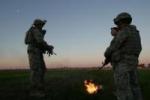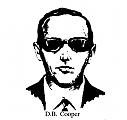How close is Iran to obtaining an atomic bomb? How likely are its leaders to use the bomb once they have obtained it?
Could the mullahs be toppled by a popular revolt? How would the people of Iran react if the United States or Israel were to attack Iran's nuclear sites? Would the reaction be different if the United States or Israel launched a decapitating strike at the government instead?
The safety of our republic depends on obtaining accurate, timely answers to questions like these. That's why "The Human Factor: Inside the CIA's Dysfunctional Intelligence Culture," by "Ishmael Jones," now available in paperback, may be the most important book you read this year.
"Ishmael Jones" is the nom de guerre of a man who spent 15 years overseas as a covert CIA officer focusing on human sources with access to intelligence on terrorism and weapons of mass destruction. So when "Ishmael" says our early warning system is badly broken, we should pay attention.
The CIA has become a bloated bureaucracy where senior bureaucrats are more interested in protecting their jobs than in gathering intelligence.
A sign of how bad things are is that more than 90 percent of all CIA employees work within the United States. This is curious for an organization whose purpose is to collect foreign intelligence.









 ), I'm not a disciple of John Yoo's view of virtually unrestricted Presidential Power; so, I can't present that position with any sort of credibility - however, it is attached as a pdf file.
), I'm not a disciple of John Yoo's view of virtually unrestricted Presidential Power; so, I can't present that position with any sort of credibility - however, it is attached as a pdf file. 

Bookmarks